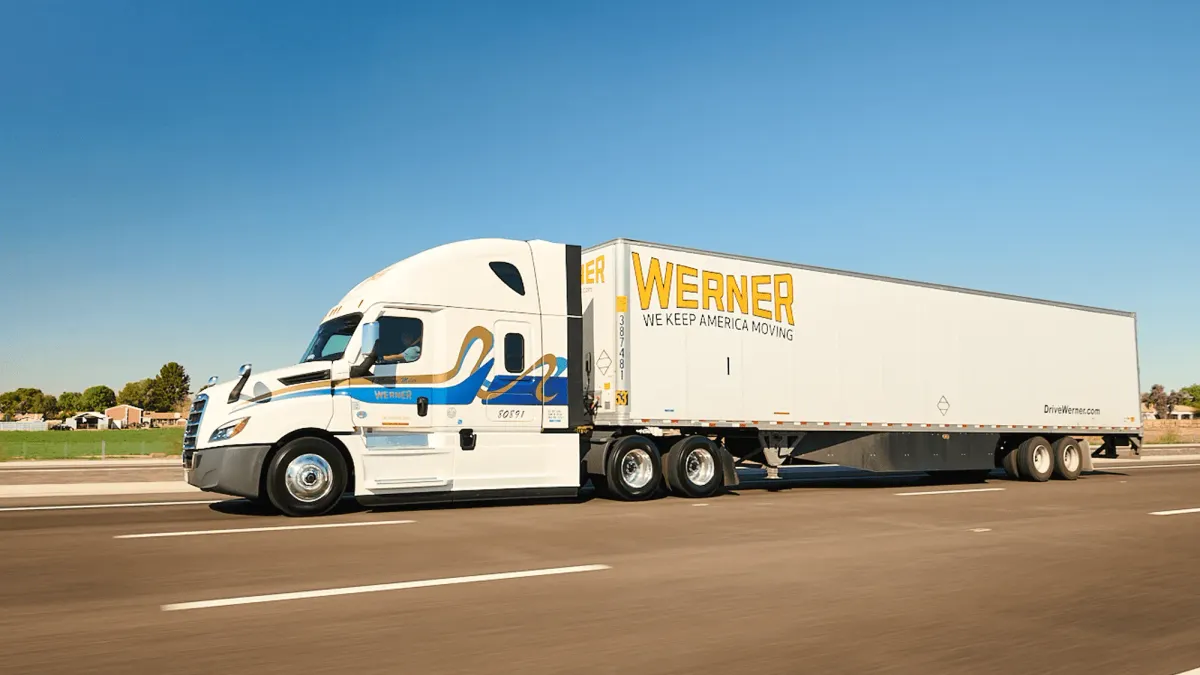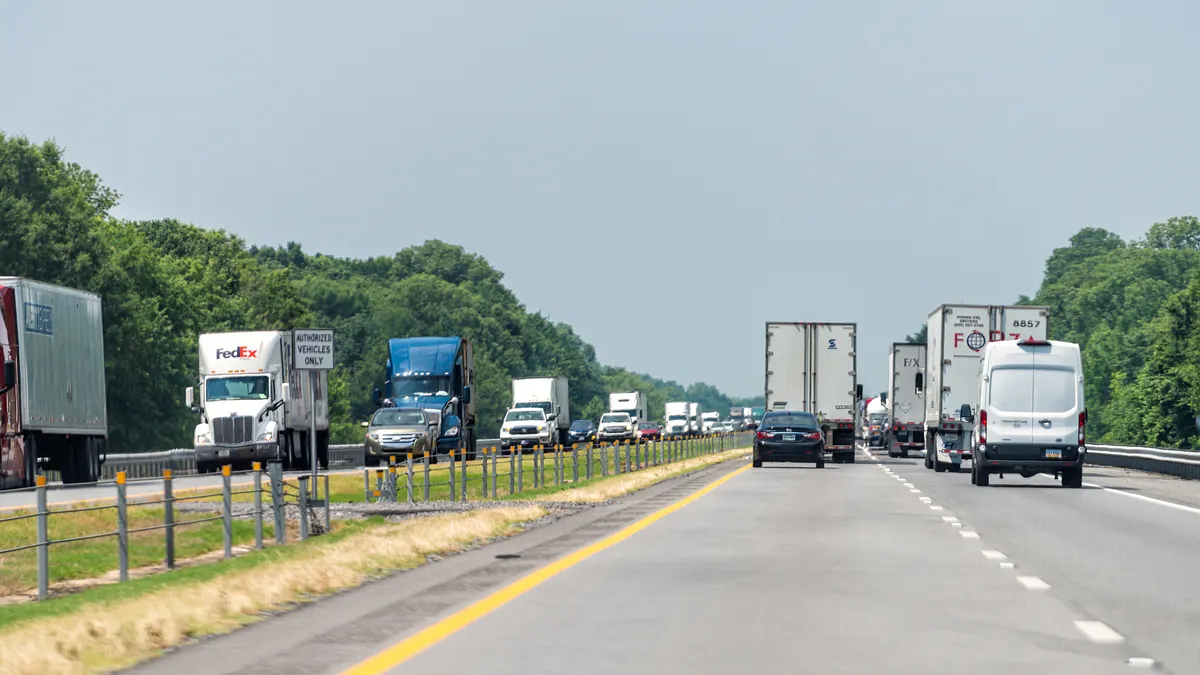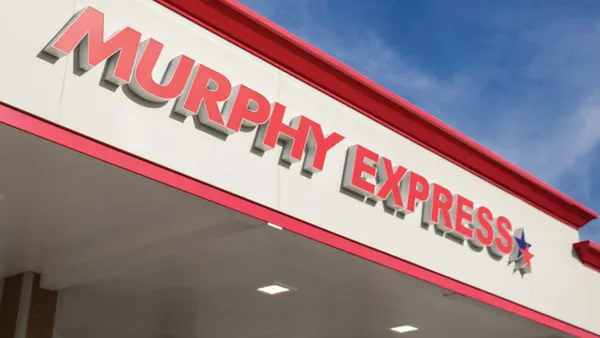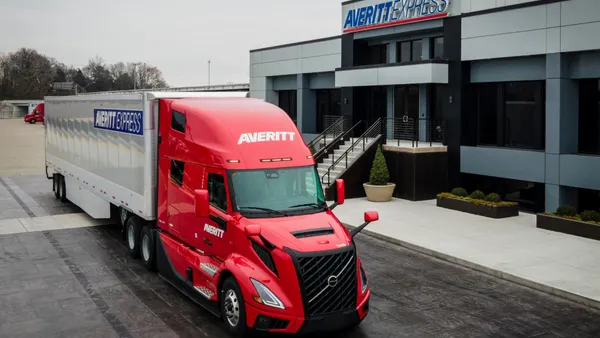Dive Brief:
- Nestlé's beverage delivery arm, ReadyRefresh, reached carbon neutrality in accordance with the CarbonNeutral Protocol, the company announced Wednesday. ReadyRefresh delivers bottled water and other beverages to homes and offices.
- The business achieved carbon neutrality through a combination of fleet conversion, route optimization, replacement of some truck trips with rail, redesigned racks, renewable energy and carbon offset projects, Henrik Jelert, executive vice president of ReadyRefresh at Nestlé Waters North America, told Supply Chain Dive.
- Jelert said ReadyRefresh's customers were a large factor in the sustainability push. "We've listened to them speaking loud and clear [about] what they expect us to do to take care of our planet."
Dive Insight:
Supply chain emissions are on average 5.5 times greater than a company's direct operations, according to CDP, prompting businesses to look closely at logistics to drive down their carbon footprint.
At ReadyRefresh, getting to carbon neutrality required several changes to its delivery business. Jelert said five years ago, ReadyRefresh had an all-diesel fleet. Now, the organization is testing electric vehicles and e-bikes for last-mile deliveries, and more than 50% of the fleet will operate on alternative fuels by the end of 2020.
Route optimization, one of the most common techniques among shippers and 3PLs to enhance sustainability, has also been a key part of ReadyRefresh's strategy. We're "focusing on putting customers like pearls on a string and increasing density," Jelert said. He said over the past two years, the business reduced its number of routes by 9%.
Within the trucks, ReadyRefresh changed its modular racks to be lighter yet able to hold more water, "which means that every mile is more water and less other material that gets transported," Jelert said.
One of the products ReadyRefresh delivers is a five-gallon bottle dispenser. The dispensers that need cleaning or refurbishment must go back to a facility located on the East Coast of the U.S.
"In the old days, we would do that by putting them on a truck," Jelert said. Now rail is the mode of choice for the West Coast to East Coast dispenser transport. Jelert said the environmental impact is the equivalent of 250 fewer passenger vehicles. According to a press release, switching from truck to rail saves 100 tons of carbon each month.
ReadyRefresh declined to comment on the operational cost of achieving carbon neutrality. Jelert said he sees the carbon neutrality status as a competitive advantage, though emphasized that wasn't the reason for reducing emissions.
Sustainability efforts typically come with up-front costs to acquire new fleets and equipment, though long-term businesses generate ROI. CDP said supplier emission reductions resulted in collective cost savings of $19.3 billion in 2019.
ReadyRefresh's carbon neutrality follows guidelines set forth by The CarbonNeutral Protocol, which include a five-step process to measure baseline sustainability metrics and set targets to reduce emissions and become a low-carbon business.
The protocol is separate from the Science-Based Targets Initiative (SBTi), which evaluates corporate carbon reduction plans to ensure they're in line with the goals of the Paris Agreement, keeping global temperature rise within 2 degrees Celsius.
Parent company Nestlé is one of more than 300 companies worldwide that set targets with SBTi. The food and beverage giant took its goals a step further, committing to targets that are consistent with limiting global temperature rise to no more than 1.5 degrees Celsius above pre-industrial levels.
It announced in September 2019 a goal to reach net-zero emissions by 2050. Nestlé said in January it will invest $2 billion in sustainable packaging.
Just as critical to setting sustainability goals and targets, however, is following through on them. Nestlé reportedly acknowledged it would not meet its goal to remove deforestation from its supply chain by this year. As of September 2019, the company's palm oil supply chain was 90% free of deforestation.










